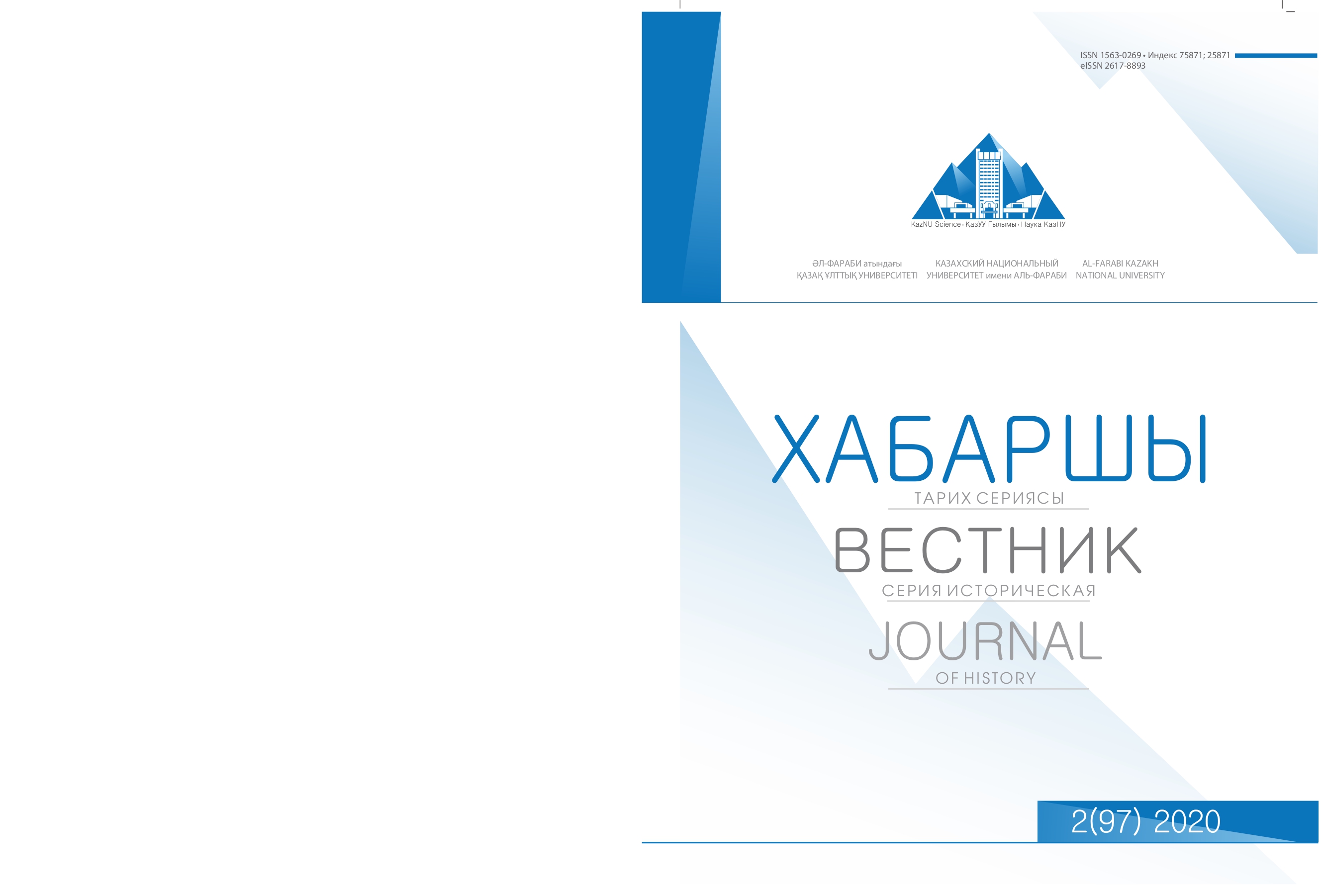Museum ethnography and cultural values in Kazakhstan (Based on ethnographic works in Almaty)
DOI:
https://doi.org/10.26577/jh.2020.v97.i2.07Abstract
Museum ethnography may seem like a collection, study, and display of artifacts, but in reality It’s a
cultural representation that reflects the cultural heritage of historic ancestors or the uniqueness of exotic
people. Specifically, the method of ethnography museum is to pay equal attention to collection and
classification of collections, and it is a combination of academic research and interpretation of exhibits.
It has the function of preserving and displaying social history and culture and representing the order
of social development. With its unique development history, research objects, knowledge system and
three-dimensional (museum, exhibits and audience) space construction, Museum ethnography in Kazakhstan
has played a huge role in preserving the traditional nomadic culture and reviving the Kazakh
spiritual civilization. In this study, through ethnographic field work in Kazakhstan from the perspective
of anthropology “the other”, the author conducted participatory observational analysis and research on
the ethnographic collections and exhibitions of all museums in Almaty city. Then combined with the
museum anthropological theories, holds that: as a kind of thinking and method, museum ethnography of
Kazakhstan attaches great importance to systematic investigation and field work, which provides valuable
reference path for the collection practice of the museum and is of great inspiration for the development
and construction of the museum in Kazakhstan.












